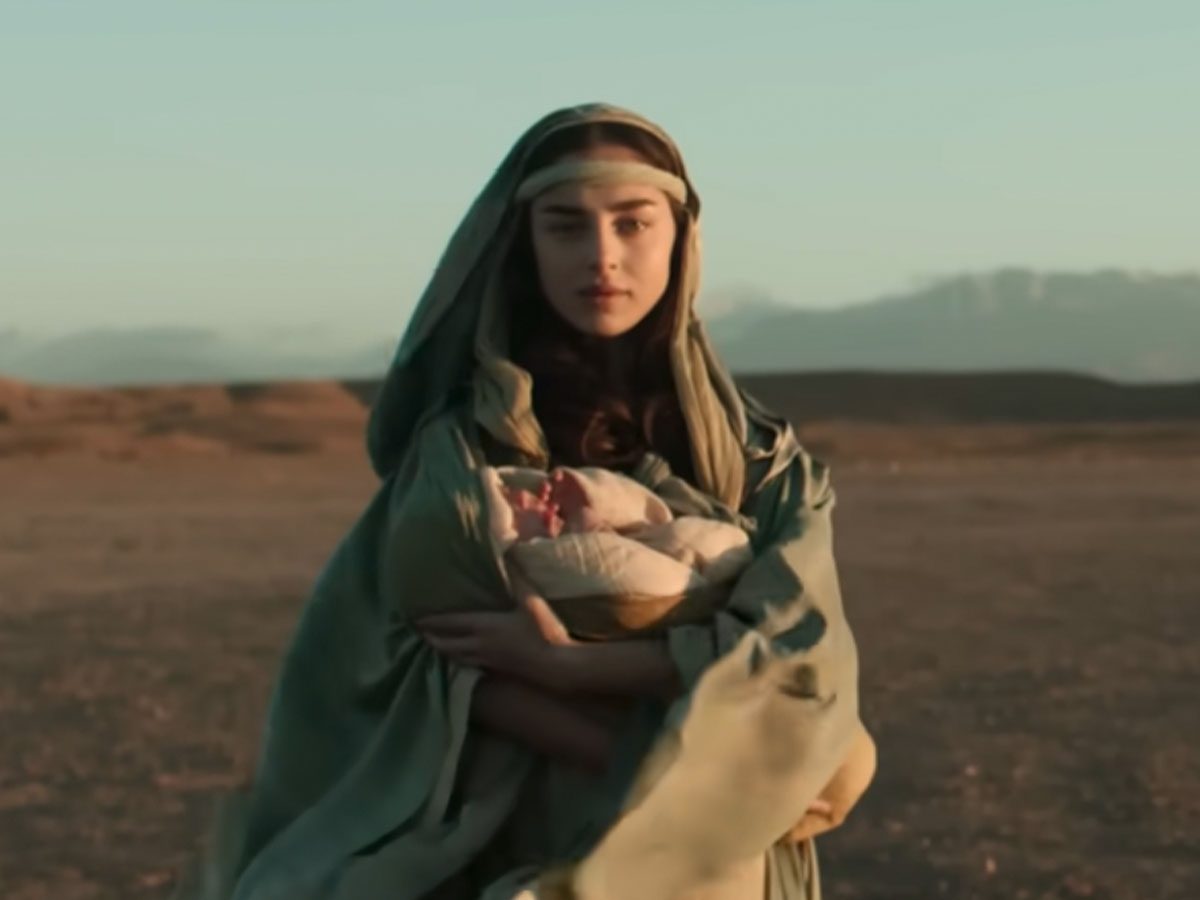
Netflix’s Biblical epic, Mary, has stirred significant backlash online due to its casting choices. Critics accuse the streaming giant of historical inaccuracy and political insensitivity. The film, which reimagines the story of Jesus’ birth through the perspective of his mother, Mary, stars Israeli actress Noa Cohen in the titular role and Israeli actor Ido Tako as Joseph, drawing the ire of some viewers who argue that the casting overlooks the historical and cultural context of the Biblical narrative.
Directed by D.J. Caruso (Disturbia) and written by Timothy Michael Hayes, Mary follows the journey of Mary and Joseph as they flee King Herod’s violent wrath with their newborn son, Jesus. The film also features Academy Award-winning actor Anthony Hopkins in the role of King Herod. However, the choice of Israeli actors in the lead roles has prompted a fierce online debate.
Director D.J. Caruso has defended the casting decision, explaining in an interview with Entertainment Weekly that it was important for the primary cast, especially Mary, to be selected from Israel to ensure the film’s authenticity. He emphasized that while the film takes creative liberties, its heart remains true to the Biblical narrative.
“We wanted to ensure that we were being as faithful as possible to the historical and cultural origins of the story,” Caruso said. “The film stays true to the scriptures while offering interpretations that enhance the central themes.”
However, this stance has not been well received by many critics, especially on social media platforms like X (formerly Twitter), where a backlash has been mounting since Netflix released the trailer for the film on November 12. Some are calling for a boycott of the film, arguing that casting Israeli actors—particularly in the wake of ongoing political tensions in the region—undermines the historical reality of the figures depicted.
Opponents of the casting, many of whom identify with Palestinian political causes, have been vocal in their opposition. Some users claim that Mary and Joseph should have been portrayed by Palestinian actors, asserting that the film’s choice of Israeli actors is a form of cultural appropriation. One X user wrote, “Instead of casting Middle-Eastern Christians to play the roles, the director cast European Israelis to play Mary and Joseph for ‘authenticity’ reasons… boycott this crap!”
Another post, which quickly garnered more than 1.6 million views, accused the film of being “diabolical” and called for a boycott, stating, “Netflix taking down Palestinian content and then streaming a movie with an all-Israeli cast about the birth of Jesus? It’s a slap in the face to the birthplace of Christ!”
Some online commentators have also expressed concern that the film commercializes sacred religious figures for entertainment purposes, with one user stating, “It’s utterly disrespectful to portray religious figures in such a trivialized manner. The casting of an Israeli actress to play Mary, the mother of Jesus, is a clear political statement that trivializes sacred beliefs.”
While anti-Israel critics continue to voice their disapproval, some pro-Israel voices have pushed back, suggesting that the backlash is an overreaction. One pro-Israel account shared a comedic clip from the Israeli satirical show Eretz Nehederet, which parodies the idea of modern liberal students traveling back in time to inform Mary and Joseph that they are not Jewish but actually Palestinian—a mockery of the very same debates surrounding the film’s casting.
For now, Netflix has not issued a formal response to the controversy.


